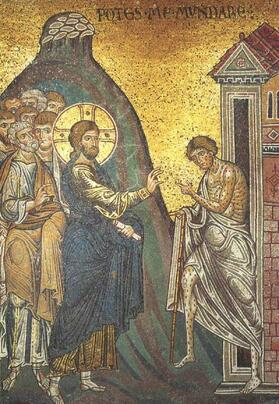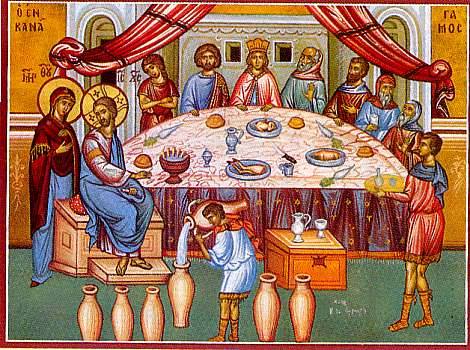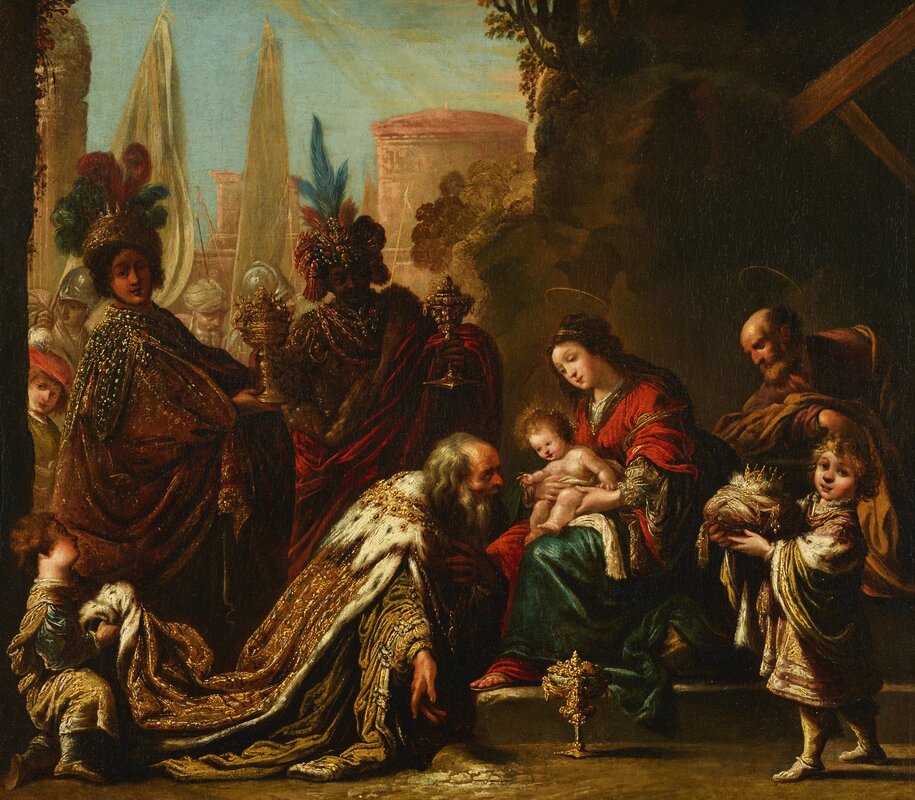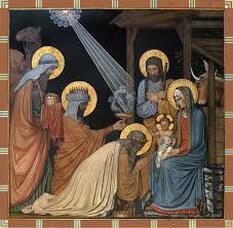January 27, 2019
Several weeks ago, a popular “Christian” music singer named Lauren Daigle was asked in an interview whether she felt that homosexuality was a sin. She answered, “I can’t honestly answer on that, in the sense of I have too many people that I love and they are homosexuals. I can’t say one way or the other. I’m not God.” She understandably got much criticism from many Christians, because the Bible is actually quite clear on whether homosexuality is a sin. Leviticus 18:22 states, “You shall not lie with a male as with a woman; it is an abomination.” And 1 Corinthians 6 states, “Or do you not know that the unrighteous will not inherit the kingdom of God? Do not be deceived: neither the sexually immoral, nor idolaters, nor adulterers, nor men who practice homosexuality, nor thieves, nor the greedy, nor drunkards, nor revilers, nor swindlers will inherit the kingdom of God.”
Now while it is easy to condemn this lady for her statement, we should realize that her words reflect the attitude of many of us. Why does she question whether God is displeased with homosexuality? Clearly there is no passage in the Bible that gives her the idea that God doesn’t care or has changed his mind about it. Rather, her judgment is changed because she has so many people that she loves, who are homosexuals. She is unsure about what the will of God is based on her feelings about people, whom she loves.
Isn’t that a common attitude toward the will of God? What is God’s will. His will is what he wants, what he says is right and wrong. “God’s will certainly can’t say that what my friends do is sinful! They are so nice! God certainly wouldn’t disapprove of my children’s behavior! God couldn’t be displeased with me! I certainly don’t feel that way.” And this is typically the way people think, the way church-folk think.
Now, let’s lay aside for a moment the fact that God’s displeasure toward sin does not mean that God does not love the sinner. Scriptures says, “but God shows his love for us in that while we were still sinners, Christ died for us.” (Romans 5:8) What’s important to note here is that our feelings and our thoughts and our experiences do not alter the will of God. God doesn’t change his position on a sin, because you or someone you love participates in that particular sin. And you do not determine how God feels about a situation by looking into yourself and pondering how you feel about it. How then do you determine what God’s will is? The leper in our Gospel lesson teaches us. Through God’s Word.
The leper says to Jesus, “Lord, if you will, you can make me clean.” The leper has faith in Jesus. He believes he is good. He believes he is powerful and able to heal. But he does not know if Jesus will heal his disease. He needs to hear Jesus’ word. When he hears Jesus say, “I will; be clean.” he knows that Jesus desires to heal him. That is how we all are. How do we know what God’s will is? Through his word. How does God want you to treat your neighbor? Scripture says to live in harmony with him. Don't be haughty. Do not be wise in your own sight. Repay evil with good. Be kind to your enemy.
We know how God wills for us to live. He says so plainly in Scripture. We have the Ten Commandments. We know from Scripture that we should worship the Lord God only and gladly hear and learn his word, that we should love our neighbor as ourselves, refrain from sexual immorality, theft, murder, and covetousness. This is God’s Law. The Law reveals God’s holy will. Scripture also teaches the Gospel. The Gospel too is God’s holy will. While the Law teaches us how to live and condemns us as sinners when we fail, the Gospel reveals to us how God saves us from sin and hell through Jesus Christ, who died for our sins. It is God’s will that you believe in Jesus Christ and be saved. And you know this is God’s will through God’s word.
Now, I’ve noted before that our feelings can get in the way of us believing God’s holy Word and knowing God’s will for us. Yet, it is not only emotions that stand in the way of us knowing God’s will, but our reason. We are intelligent creatures. God made us that way. Yet, like everything in us, our intelligence is corrupted with sin. This means that we will use our reason to argue against God’s word and therefore not know God’s will. The perfect example is Naaman, the Syrian commander, who was a leper. Elisha sent a message to him to wash in the Jordan River seven times and he would be cleansed. Naaman thought that offensive. See, there was Naaman’s problem. He thought. He shouldn’t have thought. He should have believed. Now, I’m sure Naaman was right that the rivers of Syria were cleaner than the muddy river Jordan. But God said to wash in the river Jordan. As his servant said to him, “This is a great word that the prophet has spoken to you; will you not do it? Has he actually said to you, ‘Wash, and be clean?” And so Naaman submitted his great intellect to the word of God, and he was cleansed from his leprosy.
Naaman’s pride still affects many today. It is common for people to doubt the power of Baptism. “It’s just plain water. Spirit Baptism is more important. Or, Baptism is a work of man, and only faith saves, so Baptism can’t possibly save.” These are the thoughts of human beings, who follow the example of Naaman. Yet, what does the word of God say? “Whoever believes and is baptized will be saved.” (Mark 16:16) “Repent and be baptized every one of you in the name of Jesus Christ for the forgiveness of your sins, and you will receive the gift of the Holy Spirit. For the promise is for you and for your children and for all who are far off.” (Acts 2:38-39) “Baptism … now saves you, not as the removal of dirt from the body, but as an appeal to God for a good conscience, through the resurrection of Jesus Christ.” (1 Peter 3:21) “He saved us through the washing of rebirth and renewal of the Holy Spirit.” (Titus 3:5)
Scripture is abundantly clear. Baptism saves through the power of God’s word and the Holy Spirit. It is God’s will that all people be made disciples, being baptized into the name of the Father, Son, and Holy Spirit. The only reason why people question the power of Baptism is because of human reason, which wrestles with the clear words of God.
Now, people will struggle with God’s will when God’s word reveals something they don’t like or when God’s word reveals something they don’t understand. Yet, perhaps the most exhausting struggle with God’s will is where God’s word does not reveal anything. This is called the hidden will of God. While God does tell us some things plainly, such as, how we should live, that we should repent and believe in the Gospel, there are other things that God does not tell us the answer to.
When the leper said to Jesus, “Lord, if you will, you can make me clean.” He did not doubt Jesus’ good will. He had faith not only that Jesus was powerful enough to heal him, but also that Jesus was good, as he had heard of Jesus’ many healings before. Yet, the leper did not know if Jesus willed to heal him of this particular disease then and there. He had not yet heard Jesus’ say so. And this is how many of us are in our daily struggles. I do not know how long God will let me suffer from my physical ailments. I don’t know if I’ll recover from cancer or if my friend will be reconciled to me or if I’ll get the job, etc. There are certain things, God just doesn’t tell us. So, what should we do then? The same as when we do know what God’s will is. We pray that God’s will be done.
What do we know of God’s will? Ezekiel 33 states, “As I live, declares the Lord God, I have no pleasure in the death of the wicked, but that the wicked turn from his way and live.” So, we see here that God does not want to condemn sinners, whether homosexuals, thieves, drunkards, or swindlers, but that they turn from their wicked ways and live. God desires that sinners repent and believe in the Gospel. 1 Timothy 2 states that God “desires all people to be saved and come to the knowledge of the truth.” It was the will of the LORD to crush Jesus on the cross, to lay all our iniquities upon him, and to forgive us for his sake. God’s revealed will is good. God is merciful, patient, and loving. So, what we know about God’s will should also help us to accept what we do not know.
St. Paul says, “And we know that for those who love God all things work together for good, for those who are called according to his purpose.” (Romans 8:28) We don’t always know what God wills for our life. But, because of what we do know about God’s will, we know that God’s plan for each of us is better than our own. And so, through hearing and believing the word of God, we are able to pray, “Thy will be done” both for what we do know of God’s will and for what we do not know.
We have learned that the word of God makes known to us what the will of God is. Yet, the word of God does even more. When Jesus told the centurion that he would come and heal his servant, the man refused and asked rather that Jesus say a word and his servant would be clean. The centurion was a man under authority. He understood how authority works. If a captain gives a command originally given by a general, that command has the authority of the general, not just a captain. The word of God carries God’s authority. This means that when a prophet speaks the word of God, it is not the word of a prophet, but the word of God. And also, when a pastor, who is sent by God through the church speaks the word of God, it is not the word of a man, but God’s own word.
This means that when I say, “Your sins are forgiven.” I am not just relaying to you what God’s will is, but God through these words is accomplishing what he wills. When I say, “I forgive you all your sins in the name of the Father, and of the Son, and of the Holy Spirit,” God is actually accomplishing his will to remove your sins as far from you as the east is from the west! When the pastor baptizes in the name of the Holy Trinity, God through those words is accomplishing his will to make that child a Christian. When the Gospel is preached, God’s will is not only revealed to the congregation, but his will is accomplished as the hearts of many are gladdened with the hope of eternal life in Christ Jesus.
The word of God makes known to you God’s will, that he desires you to repent of your sins and believe in the forgiveness won for you by Christ Jesus. The word of God assures you that even where you do not know what God’s will is, his will is still good. And the word of God itself accomplishes the good and gracious will of God by breaking and hindering every evil plan and purpose of the devil, the world, and your sinful flesh, and by keeping you in the true faith until you die. For this reason, we cling to the word that makes known God’s will to us. We hear it gladly, because through his word God’s will is done. Amen.




 RSS Feed
RSS Feed